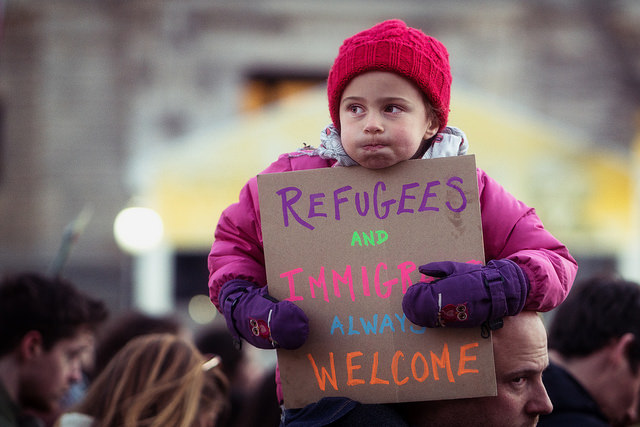“What would happen if we included horizontal gene transfer in the model?”
It was an intriguing question asked by a new Ph.D. student from Iran. I hope he can continue his studies with us long enough to figure out the answer.
President Trump’s Executive Order on immigration issued on Friday, Jan. 27, is meant to target individuals from a specific group of seven “Muslim-majority” countries. In its specificity, this order threatens us all.
The threat is existential in its attack on our shared values and purpose. The threat is quotidian in its potential to upend the lives of many, including Muslims, Christians, Jews, Bahá’ís, members of other faiths and those unaffiliated with any institutional religion. Some of those affected are here at Georgia Tech.
I am a professor of Biological Sciences and director of Georgia Tech’s Quantitative Biosciences doctoral program. The students in the inaugural year of this program come from the U.S., Mexico, Bosnia, Israel and Iran. This past fall, we would gather at 8 a.m. on Tuesday and Thursday mornings as part of the program’s cornerstone class.
The students struggled at first, but they adapted, forming study groups, collaboratively sharing ideas and, eventually, each successfully mastered the material, moving one step closer to earning their Ph.D. This spring, the students are meant to start their research projects in earnest. However, for one student in the class, science seems of secondary concern.
The Iranian student whom we recruited to join our program and has the necessary visa permits to study is, in effect, detained in the U.S. By the terms of President Trump’s executive order, he cannot leave to attend a conference; he cannot leave to initiate a collaboration; he cannot return home to see his family. He cannot do any of these things if he wants to finish his Ph.D. — a program of study that takes five years to complete.
The executive order on immigration is already contested and will enter a process of judicial review. Yet, if you were this student, would you take the risk?
The Iranian student is just one of many – here at Tech and nationwide – who share a dream to study, to improve their lives and the lives of those around them and to help make discoveries that could one day lead to a cure for cancer, HIV or Ebola or enable a transformation of the efficiency of our energy grid.
These students deserve peace of mind as they work side-by-side with colleagues in service of something greater than themselves. Many with the legal right to study and work in the U.S. are now in limbo. If these young students and other scientists and engineers are under threat, I believe it is our duty to stand in solidarity with them.
It is time to welcome the stranger in a strange land, recommitting ourselves to the promise we made to all those who are already here, reaffirming our bond to those who were already invited to come here and renewing our efforts to open our shores to those who have nowhere else in the world to turn.
The views in this essay are those of the author only.
